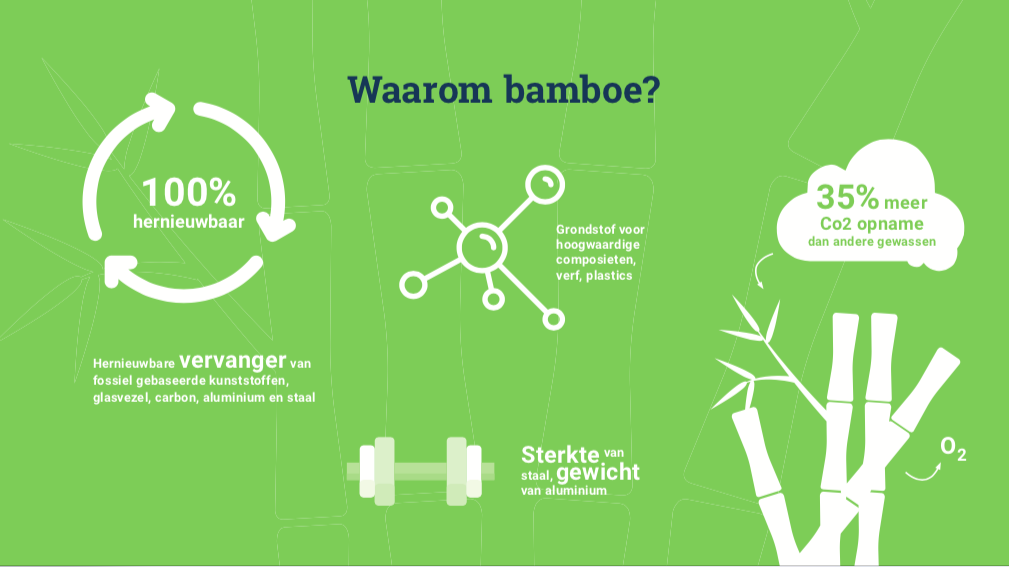“Wear Bamboo, Reduce CO2!”
Today our second blog about the benefits of bamboo. This week I tell you all about the CO2 absorption capacity of bamboo.
When setting up my company I wanted to make our entire process as ecological as possible. Our clothes had to be made with respect for people and the environment.
Here bamboo is my ideal partner:
Bamboo is cultivated organically in a natural way.
Bamboo can be cultivated all over the world.
It grows luxuriant without additional water irrigation.
Bamboo does not require fertilization and requires no use of pesticides.
Have you ever planted bamboo in your garden?
Then you know it!
It’s weeds, you don’t get rid of it anymore!
Bamboo is fully grown after 4 years. The bamboo sticks are cut off just above the ground. After the harvest, it automatically grows again. No gigantic plantations are needed and soil erosion is prevented.
Did you know that bamboo converts 30 to 35% more CO2 than other plants?
Bamboo even absorbs much more CO2 than trees. Increasing bamboo cultivation has a direct positive effect on our climate.
In a warming world, bamboo can absorb CO2 very effectively. The plant grows rapidly and can hold 100 to 400 tonnes of CO2 per hectare.
“Bamboo has the special characteristic that it can absorb 200 times more CO2 compared to an average tree. As a nutrient, the plant needs a lot of nitrogen to grow and extract it from the air. By placing bamboo units in strategic positioning in the city, fine dust, CO2 and nitrogen are absorbed by the bamboo and transformed into food and oxygen. In this way nature is helped. It sounds simple and it’s simple. Being sustainable is simply using your common sense. ‘ ‘ Says Oscar Cuiper in Bouwmagazine.
The processing of bamboo also requires relatively little energy. Also in the application no chemical and/or environmental unfriendly substances are needed. Bamboo is the new gold, especially in the context of climate objectives, where we have to reduce CO2 emissions by 40% in 2030 and use 27% renewable raw materials. A huge demand for renewable raw materials will emerge and bamboo seems to be very suitable for this.
Bamboo also has possibilities as a source for alternative energy. The bamboo snippers have the same combustion heat as wood chips. This green energy can replace the more expensive fossil fuels. As a result, a reduction in CO2 emissions is realized. 1 ha of bamboo produces the same amount of energy as 5000 liters of fuel oil. ‘ ‘
Sources: bouwmagazine.nl 31 October 2019/ IPS on 20 June 2018/https://lelystadseboer.nl › Projects
Written by Apr. Sofie Dierckx



